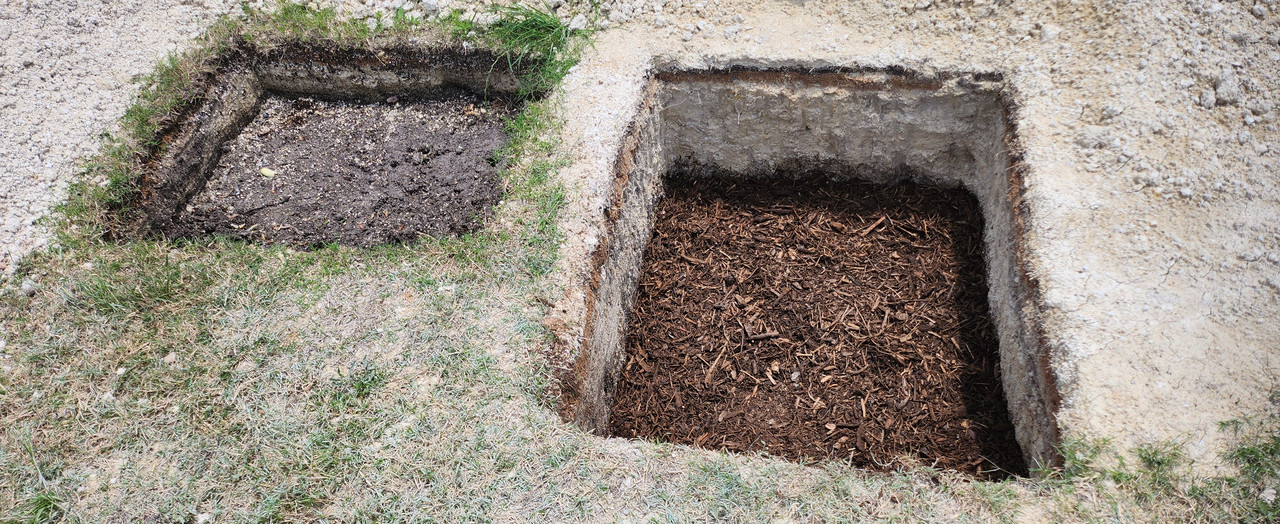Yesterday I took the carbon footprint of my gardening project slightly more positive. Our local government has "free" mulch.
I had previously asked my county extension agent whether this "free" mulch is any good. She said it is and they use it in their demonstration gardens.
So that's government dependency number 1 on my part. Every county has a government county extension office that helps with questions about gardening and agriculture.
So I combined some trips and went out of my way about 2 miles yesterday (hence the slight increase in carbon footprint) to get some of this "free" mulch. When I got there, there was a grumpy man in a booth demanding that I show him my driver's license to prove residency. After showing it to him, he told me they have so much of this mulch that he would give it to me whether I was a resident or not. I told him it seemed odd that over on the other side they take cardboard without needing to see my license. He said they make money on cardboard but that it costs a lot of money to make the "free" mulch. Since I was just checking it out, I only loaded some containers I had with about 1/3 of a yard and left.
So that's government dependency number 2 on my part. I'll have no luck getting any "free" government mulch when the money runs out.

Looking at what could go wrong here (not all inclusive):
The mulch is contaminated with disease organisms that killed the trees
The mulch is contaminated with chemical treatments that were used to kill disease organisms
The mulch consists of some wood that contains compounds that kill other plants
The mulch is contaminated with construction debris such as treated lumber that contains arsenic
The last one is the one that would concern me most. Based on what I saw at the site, it seems low probability that there is any construction debris in the mulch. But it will be noted what was done where and when, and it will vary. In the future, I will try to obtain similar mulch directly from a landscaper after a storm. That's mostly what I think this stuff is and why they have so much of it.
While the periphery breaks down rather slowly at first, the capital cities of the hegemon should collapse suddenly and violently.
